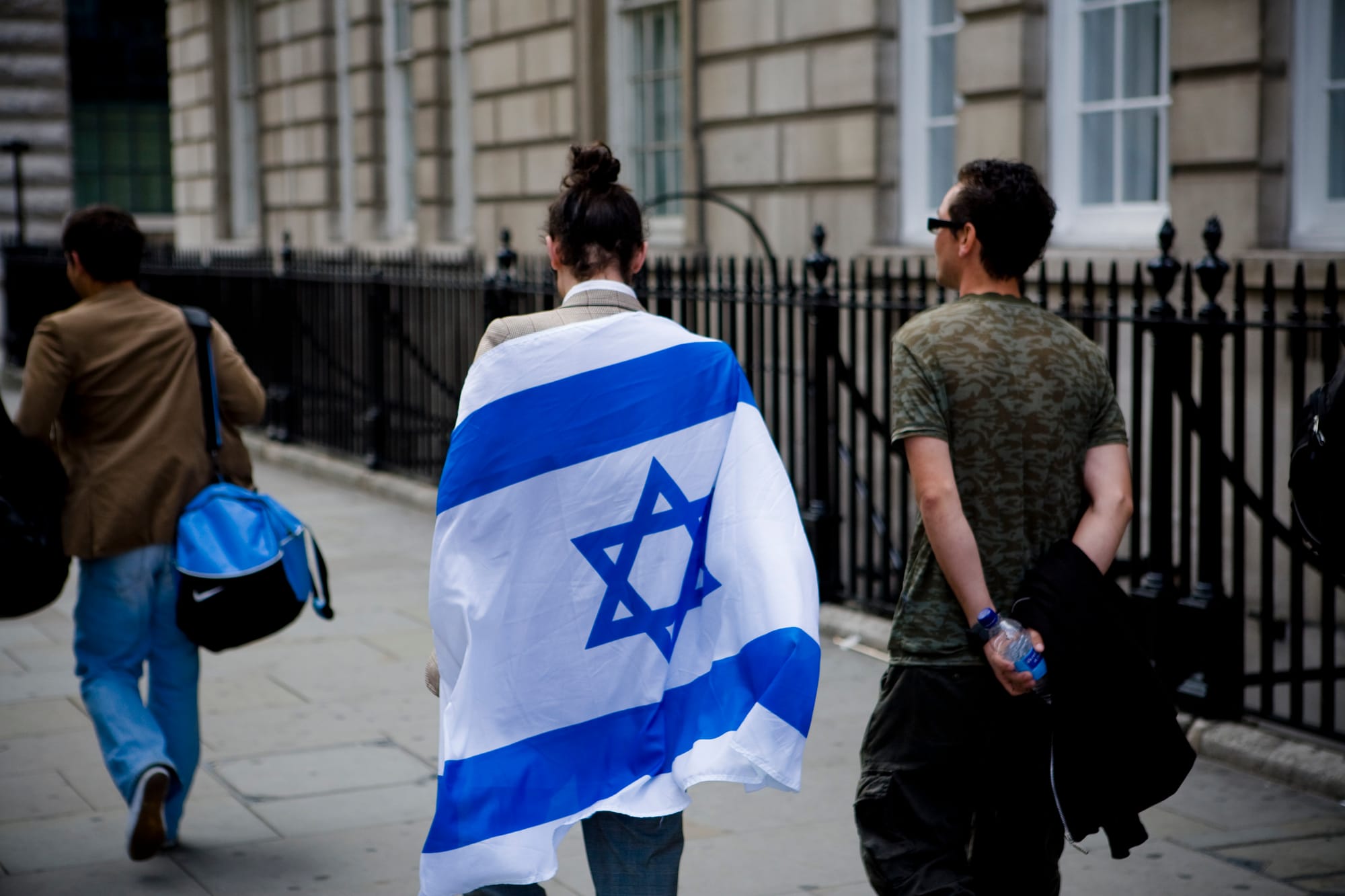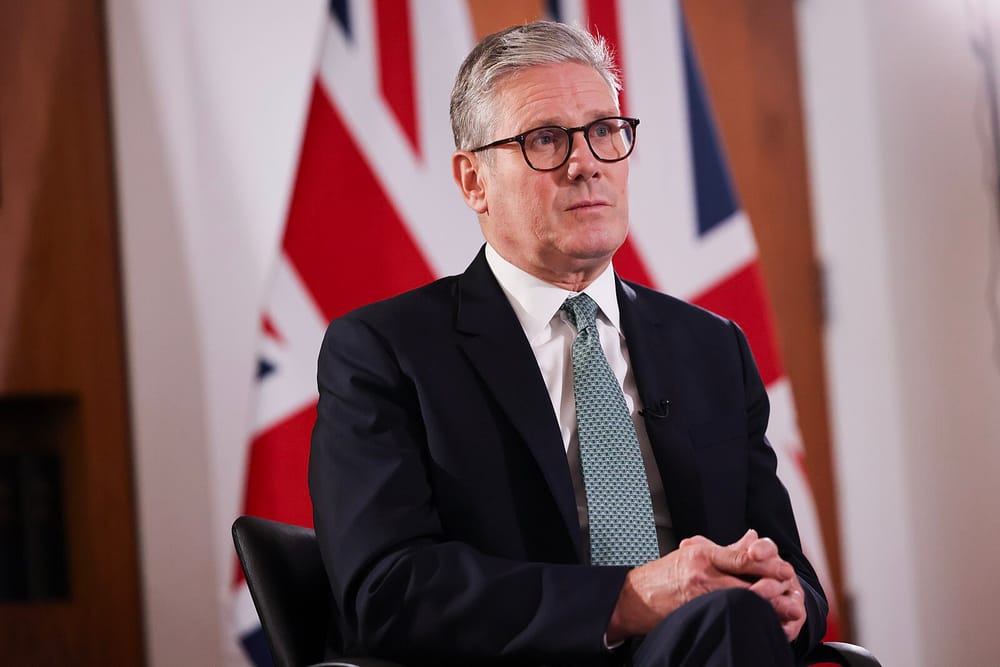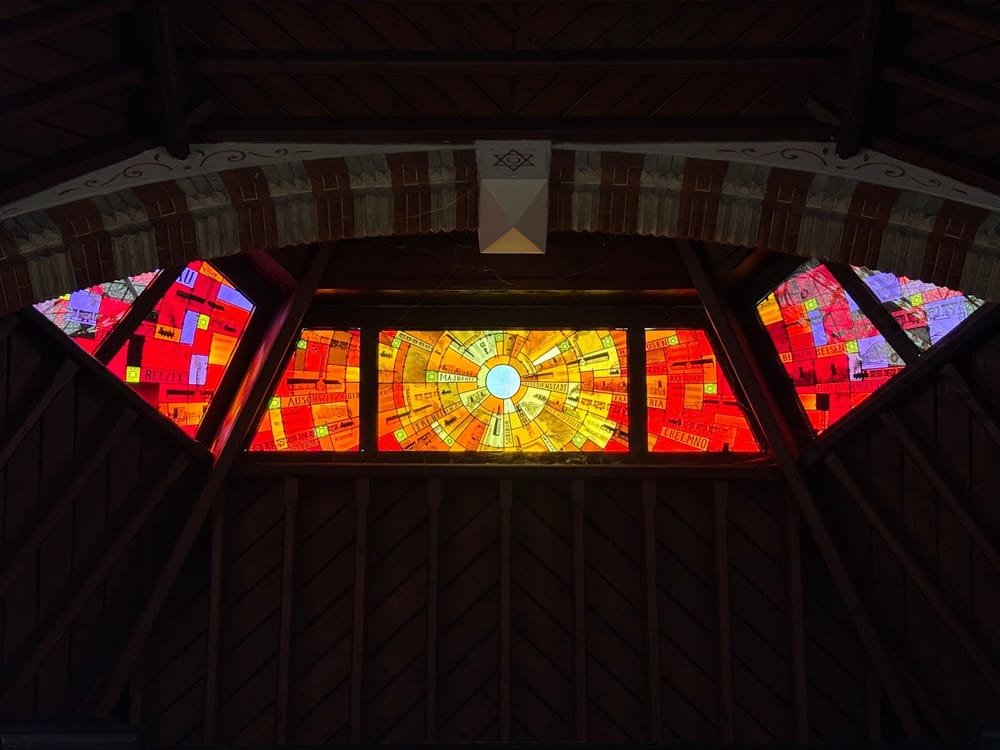Hasbara’s doppelganger politics of indigeneity
Zionism in anti-colonial clothing.

Marking the one-year anniversary of 7 October, Britain’s chief rabbi, Ephraim Mirvis, published an article in the New Statesman presenting an impassioned defence of Zionism. After recycling various well-worn tropes justifying the creation of the state of Israel as a response to the historical persecution of Jews, his argument took an interesting turn.
“It is extremely sad that the existence of a Jewish state in a land within which the Jewish people were indigenous long before the dawn of both Christianity and Islam should be seen as controversial in any way,” Mirvis wrote in the final paragraph. “I am a Zionist because I have inherited a language, culture and faith from the indigenous people of Judea.”
Close observers of the discourse surrounding Israel-Palestine, especially online, cannot have failed to notice the rhetorical shift that has occurred in recent years within what is known as hasbara – official and unofficial public diplomacy in support of Israel. As many liberals – including Jews – increasingly turn away from Zionism and join the ranks of the Palestine solidarity movement, those making the case for Israel have sought to couch their arguments in language that appeals to young progressives.
With phrases like “MeToo unless you’re a Jew”, “we are not okay” and “Jewish lives matter”, a new generation of Israel advocates – many of them young, queer, and non-white – are readily co-opting leftist slogans to reinscribe their sense of victimhood. But the undisputed cornerstone of this kind of discourse is the notion that all Jews are “indigenous” to Israel/Palestine, flipping anti-colonialism on its head.
We saw another recent example of this in May, when, not long after the first student activists at Columbia pitched tents in solidarity with Gaza, an open letter against the encampment garnered the signatures of 540 Jewish students at the university.
“Contrary to what many have tried to sell you – no, Judaism cannot be separated from Israel,” it read. “Our religious texts are replete with references to Israel, Zion, and Jerusalem. The land of Israel is filled with archaeological remnants of a Jewish presence spanning centuries. Yet, despite generations of living in exile and diaspora across the globe, the Jewish People never ceased dreaming of returning to our homeland — Judea, the very place from which we derive our name, ‘Jews.’”
These examples are part of a growing trend. Writers and activists like Hen Mazzig flood social media with posts positioning “indigenous” Jews as perpetual victims of Palestinians and their allies. Debbie Lechtman designs catchy infographics describing Zionism as the recognition that Judaism is historically rooted in “Judea”. Rudy Rochman and Ysabella Hazan founded “Decolonized Judean”, a self-proclaimed “Jewish empowerment and pride movement”. Rochman and other “activists” also promote their own “Judean-inspired” clothing line – chiefly the sudra, a garment not dissimilar to the Palestinian keffiyeh but in blue and white (there are variations in military green) and emblazoned with the words “am yisrael chai”.
While the content of this type of hasbara may vary, the goal is always the same: to cast Jews as the victims rather than the perpetrators of colonialism in Palestine. In this way, these writers and activists avoid having to engage with Israel’s colonial violence that has killed, displaced, and dispossessed Palestinians since 1948. And by portraying Judaism and Zionism as inseparable, they can paint as antisemites anyone who rejects their upside-down narrative.
Into the mirror world
The weaponization of “indigeneity” and “Jewish Pride” – which arose as part of a larger backlash against identity politics in the late 2010s – was identified by Solomon Brager in a 2021 cartoon for Jewish Currents. Brager notes how the argument that land was taken from “indigenous Jews” 2,000 years ago and subsequently colonised by numerous groups, most recently Palestinians, represents a marked departure from the original discourse of European Zionist leaders, who took pride in their links to Western imperialism.
Such a departure is a manifestation of what Naomi Klein has called the “doppelganger effect”. In her book Doppelganger: A Trip Into the Mirror World, Klein identifies how early Zionists emulated the European colonial project as a way to escape their subjectivity. “The tacit argument many Zionists were making at the time was that Jews had earned the right to an exception from the decolonial consensus – an exception born of their very recent near extermination.”
The quest to colonise Palestine became a mission to “free Jewish people” through the creation of a doppelganger Judaism: Zionism. Rootless cosmopolitans became firmly grounded in a nation-state. Emasculated Jews became strong, rugged and militaristic. And so the Holy Land, home to a tiny community of Jews for the past two millennia, became the Homeland – casting aside the area's diverse history and its majority non-Jewish population.
The Jewish people’s historical and religious connection to that land is, of course, very real. Jerusalem is holy within Judaism (as it is in Islam and Christianity). There were Jews living in the Holy Land for millennia before the Zionist movement, going back to a period of self-organisation in parts of what is now Israel-Palestine. But archaeology, often colloquially described as Israel’s “national hobby”, has a long history of being used and abused as a political tool to advance the Zionist project, promoted and funded by a web of settler organisations, NGOs, academic institutions, and the state itself.
In his new book, The Message, Ta-Nehisi Coates describes a trip to Jerusalem’s City of David: an “architectural amusement park” located in the heart of the Palestinian neighbourhood of Silwan. A film telling the story of the biblical prophets is screened onto the cave walls as visitors make their way through the site. Encouraged to imagine themselves in the footsteps of their ancestors, the message for visiting tourists is that Israel has a deed to the land, evidenced through an “unbroken narrative stretching back to time immemorial, of Jewish nationhood.”
As Yonatan Mizrahi of the NGO Emek Shaveh has explained, the City of David archeological site is part of a larger effort to present Jerusalem as having historically been primarily a Jewish city. The fact that the long-buried Iron Age city likely dated back to 200 years after King David, if he lived at all, shouldn’t get in the way of such a noble story.
A desperate – and failing – strategy
What’s perhaps most pernicious about this self-orientalising discourse is how seductive it can be to young Jews raised within pro-Israel communities. A world away from the older and less-relatable leaders of Israeli and American Jewry, advocates of this new strand of hasbara represent a diverse, global face for Judaism in the 21st century.
It’s a tempting trap for young Jews confused about their identity and relationship to the country they see annihilating Palestinians online. The indigeneity discourse provides easy answers: Jews are perpetual victims, criticism of Israel is antisemitic, Jews aren’t really white. Taking photos in blue and white keffiyehs on “Judean” hilltops is certainly more fun than having to think about what’s happening down below.
This phenomenon is not unique to Jews, and underpins the backlash against identity politics more broadly. In a political landscape like the university campus, which rightfully champions the voices of the oppressed, it has become increasingly common for the otherwise privileged to recoil at not feeling heard, as their claims to oppression are brushed aside in favour of other more pressing struggles. And so a doppelganger world is created, where speaking out in support of Israel is what’s “courageous” – as if this, rather than support for Palestinians, is what will get you cancelled, doxed, fired, arrested, deported or murdered.
But the truth is, it’s failing. To liberals around the world it has never been clearer who is the oppressor and who is the oppressed. Young Jews are showing up for Palestine in unprecedented numbers. The turn toward indigeneity politics represents only the latest desperate attempt to keep them in line – and they’re not buying it.▼
Martin Francisco Saps (@mf_saps) is a writer and PhD candidate covering religion, culture, and community in contemporary cities.
Author
Sign up for The Pickle and New, From Vashti.
Stay up to date with Vashti.



